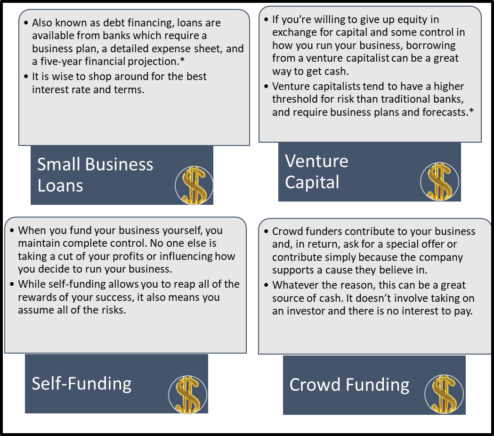SCORE: 5 Critical Steps for Scaling up your Small Business

Congratulations! You own a small business that is emerging from the pandemic crisis with more orders or projects than you ever imagined.
Or maybe you found a new path to market or a profitable target group to develop.
Whatever it is, scaling up a business means setting the stage to enable and support growth in your company, for the short- and long-term.
Take note of the distinctions:
- Scaling up a business occurs when revenue increases without incurring significant cost, resulting in the gains outpacing expenses or losses. Efficiency is key.
- Growing a business occurs when a company adds new resources (capital, people, technology) and its revenue increases as a result. The growth is dependent on additional resources.
Scaling Up: Five Questions
There are important questions to ask now that can lead your organization to what it will become…not necessarily what it is today.
SCORE Mentor, John Lippman, works with his clients to confirm that the new growth opportunity makes good sense for the current business. He asks questions that help clients work on a practical plan forward:
“How will this new product or service fit into a longer-range plan? (not the latest shiny object)
How will the new initiative be financed? Can it grow steadily using existing or surplus cash flow?
Will new staff be required, or can the existing team handle the growth in the beginning?
Is the business owner prepared to hire, train and supervise new employees?
What experience does the business owner have with delegating tasks?”
Scaling Up: Five Steps
Consider these five critical steps:
Step 1 – Scaling Up: Evaluate and Plan
Just like when you started your business, plan your work and work your plan! It’s time to assess where your business is right now.
Look at every area: your customers – repeating and new, where you expect to get additional orders or projects, how you market your products or services.
Understanding your competition is just as important. Refresh your competitive analysis and review the successful and unsuccessful business models, product and service offerings, marketing and pricing currently being used.
A solid plan will include a detailed sales forecast by customer and by month or season. The more specific it is, the better the marketing and sales plan will be.
Your expenses will go up. Do an expense forecast with the estimated costs of your operations, equipment, people and other expenses to support your future sales
Frank Millheim, SCORE Mentor for more than ten years, asks his clients to write down their near-term and long-term goals, to clearly define the problem or opportunity they will address as they grow their businesses. Frank advises them to: “Modify the business plan to describe your path to get to the next level. Plan a multi-step transition with manageable small steps.”
Other ideas include prioritizing the product or service mix to the top few offerings based on customer interest and purchase behavior.
“Pick your winners in the market. Have a customer focus vs. relying on your own opinions. Beyond your success at your skill or your unique program, learn how to find customers, nurture relationships and address their feedback.”
Step 2 – Scaling Up: Find the Money
How will you find the money to invest for growth? Scaling a business is not free of charge.
Most entrepreneurs need capital to fund growth with big purchases like a larger facility, upgraded technology or adding employees. There are several ways to get the cash you need to grow your business.
Before seeking funding, however, it is important to evaluate current and projected cash flow. This data can help estimate if there will be a pay out in a reasonable period of time. If it appears risky, a lower cost option will be needed to move forward. John Lippman says, “Perhaps the owner can decide to use an existing location rather than add lease payments and other expenses until the new concept is proven in the market.”
If the opportunity looks strong, Frank Millheim says: “It is wise to time-phase the need for capital” to pace the financial risk with the sales growth. Discussions and plan reviews with SCORE subject matter experts can help the owner sort through financial, operational, marketing and technical challenges to inform the funding decision.
Reach out to a SCORE mentor to have an experienced partner by your side to walk you through the business planning process and financial projections.
Contact a SCORE mentor today.
There are four primary types of funding a small business owner can consider. Each type has its pros and cons depending on the amount you need, your level of risk adversity, your willingness to relinquish equity versus pay interest, and the amount of capital you already have on hand.

*SCORE has a number of business planning resources to get you started in writing your plan. Visit the SCORE Business Tips, Tools & Templates to get started. https://chesterdelco.score.org/tips-and-templates
If you experience challenges securing a traditional business loan, the U.S. Small Business Administration can support you with an SBA-guaranteed loan, giving a bank more confidence when lending to your business. sba.gov/funding-programs/loans
Step 3 – Scaling Up: Secure the Sales
Refresh your marketing and sales plan to account for additional orders and/or projects.
Include:
- lead generation and marketing systems to track and manage customers records
- sales training and sales rep recruiting schedules if needed
- systems to manage the order or request for quote processes
- billing and collections procedures for a larger business than you have today
Step 4 – Scaling Up: Invest in Technology
Identify your technology needs for a business designed for steady growth with potential new target customers, business models, and/or more reach across regions, states or countries.
Now is a good time to evaluate products and systems that save time and money. Investigate customer relationship management (CRM) programs, digital marketing options, inventory, manufacturing, accounting, shipping as well as computer and telecommunications systems that will enable effective and efficient implementation of your growth plan.
Step 5 – Scaling Up: Find Good Team Members or Strategically Outsource
At some point along the way, small business owners realize that they can’t do it all themselves and still do it all well. Running a company is a huge undertaking and the larger and faster your company grows, the more you’re going to need to rely on others to help you.
Growing a business requires that you make the tough choices. What functions or jobs should you perform, or not perform, internally?
Frank Millheim points out that often business owners must first solve how to manage customer service with an abundance of orders or projects. He says, “It’s about off-loading time-consuming activities such as administrative and accounting tasks.” He encourages his clients to consider affordable options such as part-time staff, contractors, university interns or skilled volunteers.
Third party contractors, agencies or consultants may have available talented people and systems that would take you too much time and money to develop on your own. Find reliable partners to help you scale faster, better, cheaper. Functions like digital marketing, IT, payroll can be ripe areas where outsourcing is more cost effective for your company.
If adding skilled employees is a priority, SCORE recommends that owners follow a disciplined hiring process: clarify roles, find qualified applicants, and choose the best candidate for the job.
In the post-pandemic job market, you will want to explore online job boards, leverage your network of professionals and share the opportunity with all your contacts to get good referrals. Consider posting your open positions on Indeed.com, ZipRecruiter.com, CareerBuilder.com and VolunteerMatch.com for nonprofits and charitable organizations.
It may take a few rounds of interviews to get a solid understanding of which candidates are best for the job. Don’t undervalue the softer attributes that aren’t as easy to identify on a resume, like cultural fit and the candidate’s ability to communicate clearly with clients or customers. Finally, check references. References can help you learn more about the candidate’s capabilities, functional experience, and contributions in past roles.
Rely on insights from trusted mentors and colleagues to round out your thinking before you make a hiring decision.
Final Thought
Scaling your business ‘to the next level’ will take focused attention and commitment. Are you ready to work on your business, not just in your business?
A Reminder
Remember to SHOP LOCAL this Holiday Season!
Support Small Business Saturday, Nov. 27, in your community
Find local Delco businesses at the Delaware County Chamber of Commerce website.
Find local Chesco businesses with this Chester County Shopping Guide.
About SCORE
SCORE, the nation’s largest network of volunteer business experts, is dedicated to helping small businesses get off the ground, grow and achieve their goals. Since 1964, we have provided education and mentorship to more than 11 million entrepreneurs nationwide. SCORE Chester and Delaware Counties has been operating since 1985, with 100 dedicated volunteers today who provide confidential mentoring at no charge and offer business seminars, workshops and webinars to benefit the local community. chesterdelco.score.org/
SCORE is a 501(c)(3) nonprofit organization and a resource partner of the U.S. Small Business Administration (SBA).
Join Our Community
Never miss a Delaware County story!
"*" indicates required fields

























![95000-1023_ACJ_BannerAd[1]](https://delco.today/wp-content/uploads/sites/3/2023/03/95000-1023_ACJ_BannerAd1.jpg)






